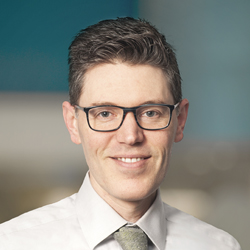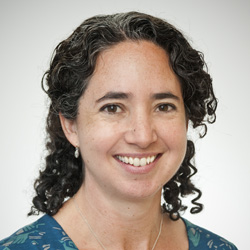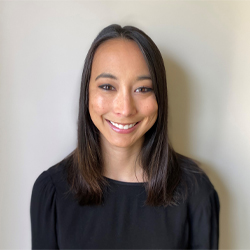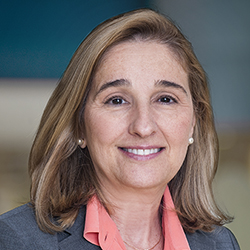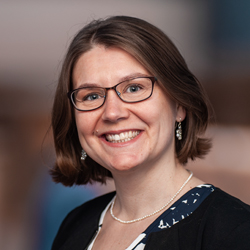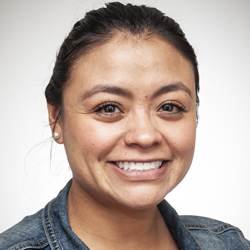22q Clinic
What is the Seattle Children’s 22q Clinic?
Seattle Children’s 22q Clinic cares for children who have differences in a part of chromosome 22 called the q11.2 region.
Our 22q Clinic brings together experts from many departments to care for children who have 22q11.2-related disorders. These differences can cause a wide variety of problems, from mild to severe.
Why choose the 22q Clinic at Seattle Children’s?
Most families have never heard of 22q11.2-related disorders before their child is diagnosed. Our 22q Clinic has been diagnosing these conditions and helping families care for their children since 2006. We are the only multidisciplinary clinic for children with 22q11.2-related conditions in the 5-state region that includes Washington, Alaska, Montana, Idaho and Wyoming, and the second largest 22q Clinic in the United States.
At the 22q Clinic, a team experienced with these conditions will evaluate your child. We create a personalized care plan for your child and bring in other experts as needed to meet your child’s specific needs.
We work to understand the total picture of your child’s health. Our goals are to diagnose and care for each problem that affects your child.
How can the 22q Clinic help my family?
-
Prenatal diagnosis
We welcome expectant parents who have questions after testing during pregnancy or because of a family history of these conditions.
If prenatal testing shows that your baby may have a 22q11.2-related disorder, our team can help you understand the test results and suggest other tests if needed.
Tests may be done on samples from:
- An expectant mother’s blood, which includes DNA from the placenta. This is called noninvasive prenatal screening (NIPS).
- Amniotic fluid that surrounds and protects a baby in the womb (amniocentesis).
- The placenta, through a test called chorionic villus sampling (CVS).
The tests can show if there are changes that might mean a 22q11.2-related disorder. But tests cannot tell how much these genetic changes will affect your baby. We may suggest more tests, such as a fetal heart scan (fetal echocardiogram) to look for heart defects.
See 22q11.2-related disorders for more about prenatal diagnosis.
-
Diagnosis after birth
Your doctor will examine your child and look for the differences that are linked with 22q11.2-related disorders. Since the symptoms of the conditions differ from child to child, a careful exam is important.
We may test your child’s blood to look for genetic changes to confirm a 22q11.2-related disorder.
Your child may need other tests or procedures to learn more about their exact condition. For example, an ultrasound picture of their heart (echocardiogram) can show if they have any heart problems.
-
Coordinated medical care
Our clinic can easily form a team with the right experts to care for your child’s specific needs. Our experienced team has specialists in 10 different fields.
Your child can receive much of their care in the same place at the same time. If your child needs to be checked by other departments at Seattle Children’s, we coordinate appointments to reduce the number of clinic visits.
We work together, and with you and your family’s doctor, to care for your child.
-
Family education and support
It is often helpful to connect with other families whose child has a 22q11.2-related disorder. Our social worker helps you get the support you need. We will also put you in touch with resources in your community.
Our clinic takes part in events to help families meet each other and to raise awareness of these conditions.
Who is on the 22q Clinic team?
Teams
Craniofacial Pediatrics
The craniofacial pediatrician diagnoses your child and manages medical problems related to their 22q disorder. The doctor guides your child’s overall treatment and works with other team members to coordinate specialty care.
Feeding and Swallowing
Infants and children with 22q related disorders may have difficulties with feeding and/or swallowing. Our feeding and swallowing therapists assess and support your child’s eating and drinking from infancy through childhood. They work closely with your family and your child’s medical team (primary care doctor, nutritionist, craniofacial pediatrician etc.) to develop safe feeding plans to help your child grow and thrive.
-
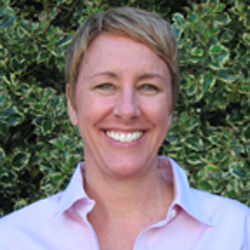
Tracy Brundage, MOT, OTR/L, IBCLC
Genetic counseling
Our genetic counselor has specific experience with 22q disorders. They can advise you about the advantages and limitations of genetic testing, explain test results, give you information about your child’s condition and help you make informed decisions about family planning and your child’s treatment.
-
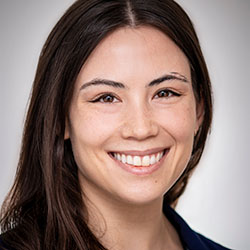
Maria Mills, MS, CGC
Immunology
Our immunologist works with the care team to make sure your child’s immune system is working well to help your child manage infections.
Medical assistants
The 22Q Medical Assistant will get you ready for your appointment, taking vitals and making sure your child’s chart is up to date. They can help you navigate your time in clinic by keeping track of your schedule and being ready with snacks and coloring!
-
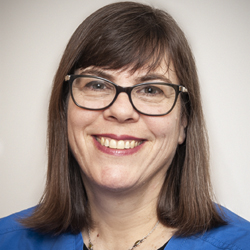
Patricia Harriman, MA
-
Maja Koch, MA
-
Brandy Teigen, CMA
Neuropsychology
Youth with 22q may have challenges with learning, development, focus, behavior, or school. Our Neuropsychology team assesses babies, children, teens and young adults with medical conditions that may affect their thinking, memory, learning, or behavior. Our evaluations will help identify your child’s cognitive strengths and weaknesses, and make recommendations for supports and interventions.
Nursing
Treatment plans for 22q can be complex. Our nurse coordinates your child’s care and eases communication among the care team members and with your family. She can answer questions and offer advice.
-
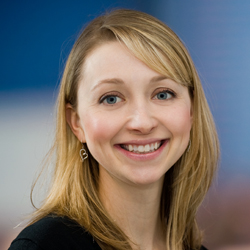
Christina Parrish, RN
Nutrition
Children with 22q may have challenges with eating and weight gain, especially during the first years of life. Our dietitian works closely with your family, your child’s regular doctor, and your child’s 22q pediatrician to develop feeding plans, monitor calorie intake and track weight gain.
-
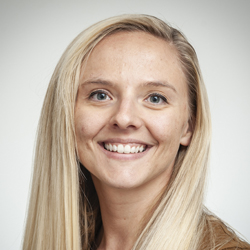
Mariah Nicole Kassuhn, MS, RDN, CD
Psychiatry and Behavioral Medicine
Our psychiatry and behavioral medicine providers include psychiatrists, psychologist and nurse practitioners who specialize in neurodevelopment and mental health conditions and will support your child and family through the challenges of a craniofacial condition. They can help determine how a craniofacial condition is affecting your child and family life and provide guidance.
-
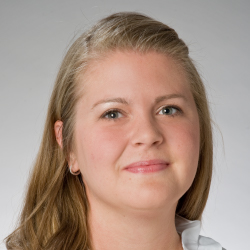
Tiffany A Sandy, ARNP
Speech and language pathology
Children with 22q related disorders may have speech problems. Our speech pathologists assess and monitor your child’s speech development throughout childhood to determine how to improve their speech skills. They may recommend treatment such as speech therapy, a speech appliance or surgery.
-

Lauren Beckett, MC, CCC-SLP
Other specialties include:
These providers are all part of our coordinated 22q Clinic team.
Depending on your child’s needs, they may also receive care from other Seattle Children’s specialists for problems related to their bones, eyes, gastrointestinal system, heart, endocrine system, or kidneys.
22q Adult Clinic
As your child nears age 21, we will work with your family to help your child move from child-centered to adult-centered medical care. If your young adult needs ongoing care from providers with expertise in this condition, we will refer you to the 22q Adult Clinic at the University of Washington. We partnered with the Adult Autism Clinic at University of Washington to create this program, which is the first of its kind in the United States. Providers in this clinic can manage ongoing psychiatric and medical conditions for patients with 22q-related disorders through adulthood, as well as connect your child to any subspecialty care needed at the University of Washington. Although this clinic is part of the Adult Autism Clinic, your child does not have to have a diagnosis of Autism to receive care there.
What to Expect at Your First Visit
When we receive a referral for your child, a nurse from the 22q Clinic will reach out to you to introduce the 22q Clinic. During your first appointment at the 22q Clinic, you will meet a pediatrician and a genetic counselor with expertise in 22q11.2-related disorders. They will determine which specialists should be on your child’s care team, based on your child’s age and health needs.
We will review any genetic test results you have and let you know if additional testing is needed.
Families traveling from outside the Puget Sound area may want to have a first visit that combines reviewing genetic tests and meeting the experts your child is likely to need. That type of visit may take longer to schedule.
Telemedicine at Seattle Children’s
Your child’s first appointment in our clinic is usually in person and take about 90 minutes. Later visits may be offered via telehealth (virtual).
Contact Us
You or your doctor can contact us for an appointment. Call the Craniofacial Center at 206-987-0339.
We encourage you to talk with your primary care provider first to discuss coming to see Seattle Children’s specialists. This helps coordinate your care.
See Refer a Patient for more information.

